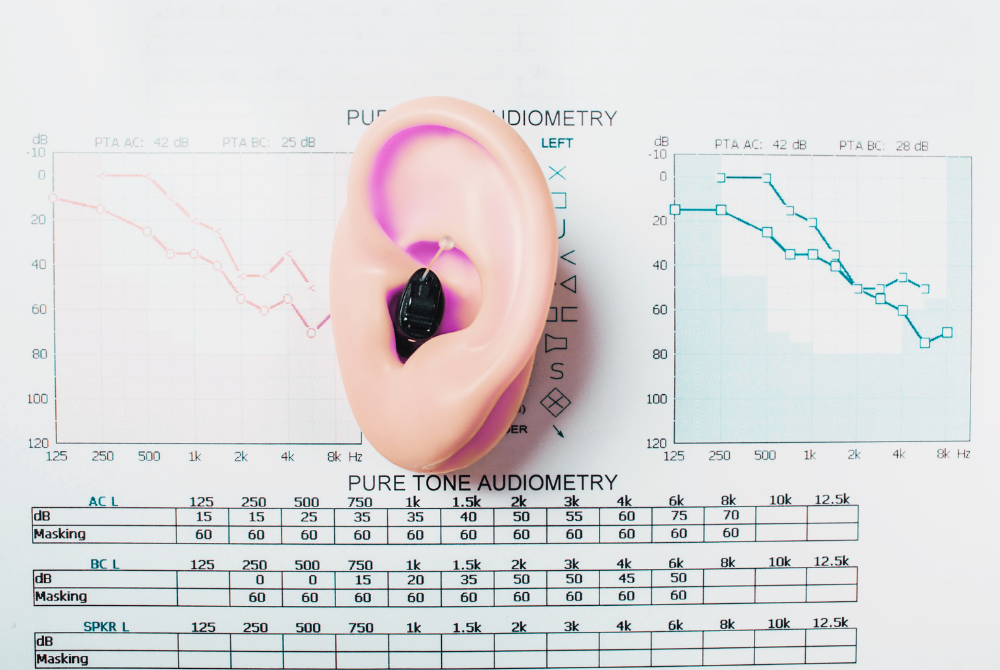Don't miss the signs: Early hearing detection crucial for speech development
Success stories show importance of hearing tests

SHAH ALAM - For many parents, the first gurgle, coo, and babble of their newborn are milestones filled with joy. But for some, these precious sounds might be delayed or even absent.
Undetected hearing loss in children can have a profound impact on their development, affecting everything from speech and language skills to social interaction and academic success.
According to Prince Court Medical Centre Consultant Otorhinolaryngologist Dr Anura Michelle Manuel, early detection of hearing problems is crucial because undetected hearing loss can severely impact speech development.
She stressed that without hearing, children cannot learn to speak, as auditory input is essential.
“Hearing loss can range from mild to profound, with profound bilateral hearing loss resulting in a silent world and an inability to speak.
"Mild to moderate hearing loss can cause unclear speech, and moderate to severe loss can significantly delay and distort speech.
“Early years are critical for speech development and undetected hearing loss can hinder communication, social interactions and academic performance.
“Detecting and correcting hearing loss early, such as with a hearing aid, can transform a child's life, enabling effective communication, academic success and social integration,” she told Sinar Daily when contacted.
Dr Anura also acknowledged several risk factors that can increase the likelihood of hearing problems in newborns, categorised as antenatal, perinatal and postnatal.
“Antenatal factors include genetic conditions like Usher syndrome, maternal infections such as rubella and maternal health issues like drug use or preeclampsia.
"Perinatal factors involve birth trauma and oxygen deprivation during delivery.
“Postnatal factors include severe jaundice, infections requiring prolonged antibiotic use, and extended neonatal intensive care unit (Nicu) stays.
“High-risk babies are screened first, followed by universal screening for all newborns, aiding early detection and intervention to improve outcomes for children with hearing loss,” she added.
Anura also shared several success stories from her experience and practice regarding detecting hearing problems in children.
“One child with severe to profound hearing loss was detected through newborn screening, received cochlear implants, and is now developing normally.
“Another child with mild to moderate hearing loss was undetected until primary school, but after getting hearing aids, their communication, school performance and social interactions improved significantly,” she said.
However, Anura also mentioned that eight years ago, a child missed the follow-up after a newborn screening due to family relocation.
“Upon returning, the child had severely distorted speech and was diagnosed with profound hearing loss in one ear and moderate to severe loss in the other.
“After receiving a cochlear implant and a hearing aid, the child’s communication improved, but speech development was less significant due to delayed intervention.
“Some parents do not follow up due to denial, work commitments, lack of awareness or belief in natural development.
“In Malaysia, parents have the final say in their child's medical care, unlike in some countries where doctors can intervene legally if parents make harmful decisions,” she said.
Dr Anura also clarified that newborn hearing screenings are typically conducted within the first six to 12 hours after birth and before hospital discharge.
She added that if staff are unavailable, parents receive an outpatient appointment.
“Screening methods include the Otoacoustic Emission (OAE) test, which uses a soft earphone to play a sound and detect an echo response, and the Automated Brainstem Response (AABR) test, which uses electrodes to detect responses to a soft click, assessing hearing up to the brain level.
“If the initial screening fails, a second test is scheduled within a month, and if that also fails, a diagnostic test is conducted.
"Diagnostic tests are more time-consuming and may require sedation.
“Follow-up and diagnostic testing should ideally be completed within one to three months of birth,” she added.
Dr Anura cited that in Malaysia, healthcare professionals explain the importance of follow-ups for potential hearing issues, with paediatricians and ear, nose and throat (ENT) surgeons involved in further assessment and counselling.
“Early detection and intervention are crucial to prevent developmental setbacks, with support from audiologists, paediatricians, ENT surgeons and healthcare workers.
“Financial aid is significant, as hearing aids cost RM3,000 to RM15,000, and cochlear implants RM80,000 to RM90,000, with government funding available for children diagnosed before age of four,” she said.










